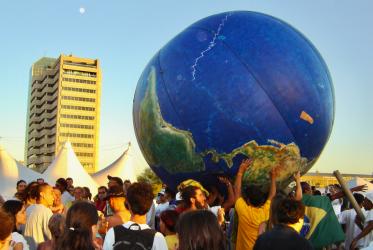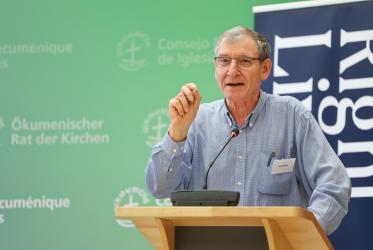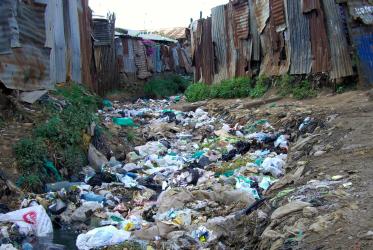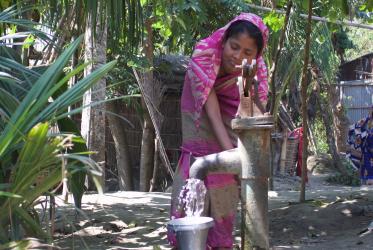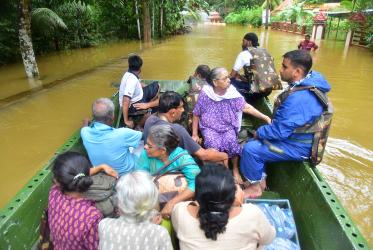Displaying 1 - 20 of 39
09 February 2024
WCC stands in solidarity with victims of major flood in Brazil
17 February 2022
Climate crisis fuels existing water injustice
27 October 2021
On World Toilet Day, sanitation is “an issue of justice”
16 November 2020
Churches should use their voice on climate change
26 February 2020
New WCC “Eco Ambassadors” pledge to protect our ecology
06 January 2020
WCC Eco-School encourages youth to become eco-ambassadors
08 November 2018

